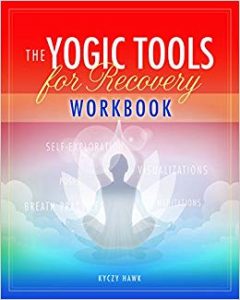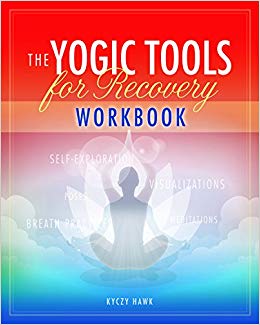 Many of our human brains excel at separating, dissecting, labeling, categorizing and organizing concepts in an attempt to make them more understandable, yet terribly complicated. This author has, in her genius, taken incredibly complex, timeless wisdom and historically successful methodologies for healing and made them simple(not easy), comprehensible and accessible.
Many of our human brains excel at separating, dissecting, labeling, categorizing and organizing concepts in an attempt to make them more understandable, yet terribly complicated. This author has, in her genius, taken incredibly complex, timeless wisdom and historically successful methodologies for healing and made them simple(not easy), comprehensible and accessible.
Over the years I have wrestled, like many people, to regulate my personal fluctuations between my attachments to pleasure and my aversion to pain settling on a “healthier addiction” to collecting books or knowledge. In constant pursuit to quell my endless thirst for the most up to date, accurate resources for my own personal growth and to assist my offerings to students and residents I work with countless books lining multiple shelves, desks, tables and even the floor alongside my bed.
For the past twelve years I have been a facilitator of yoga and meditation in schools, camps, studios and addiction recovery centers. In all those years I have compiled quite a rich collection of resources to assist my articulation and assimilation of yoga ,meditation, psychology, philosophy, addiction, trauma and recovery for myself and those I work with. Among these resources, two books in particular stand out, unparalleled in skillful marriage and deliverance (or contribution) of content. Yogic Tools for Recovery: A Guide for working the twelve steps and its accompanying workbook with the same title by Kyzcy Hawk are an elegantly potent weaving of yogic psychology, twelve step philosophies, somatic, and spiritual exercises and concepts in a comprehensive tapestry of healing/wholeness. I am still uncertain how or why it is not a regularly accepted and/or utilized tool in all recovery centers. Perhaps now that more and more facilities are beginning to recognize the necessity and benefit of including recovery based,trauma informed yoga in the process of healing the whole human being from the dis-ease of addiction,we will see these books stocked and available in all rehabilitation centers.
Kyczy in her genius, humbly yet powerfully offers her understanding of both yoga and the twelve steps in these thoroughly easy to digest, highly intricate and delightful books outlining similarities and differences between the two systems. For many people who managed to free themselves from the throes of active addiction, there remains an emptiness, a void. For myself and many others, yoga offers diverse effective practices to release and process trauma and tension patterns trapped in the tissues of our physical bodies. While many have written and teach the coupling of these two systems Kyczy Hawk has created a compilation unlike any other in each chapter offering insights, questions and exercises, investigating steps, yamas, niyamas, koshas, chakras, kleshas and so much more.
Yogic Tools for Recovery: A guide for working the twelve steps and its accompanying workbook of the same title are  by far the most valuable tools for anyone working a path toward healing and wholeness. Fortunately there are many amazing books and resources available for those of us working through our own addictive behaviors, or supporting and trying to understand a loved one’s struggle through addiction recovery and relapse prevention, but I’m yet to see it done better by anyone and highly recommend these books to anyone and everyone curious, invested or in any way interested in how yoga and the twelve steps together can mend the broken spirit and quench the hunger ghost.
by far the most valuable tools for anyone working a path toward healing and wholeness. Fortunately there are many amazing books and resources available for those of us working through our own addictive behaviors, or supporting and trying to understand a loved one’s struggle through addiction recovery and relapse prevention, but I’m yet to see it done better by anyone and highly recommend these books to anyone and everyone curious, invested or in any way interested in how yoga and the twelve steps together can mend the broken spirit and quench the hunger ghost.






